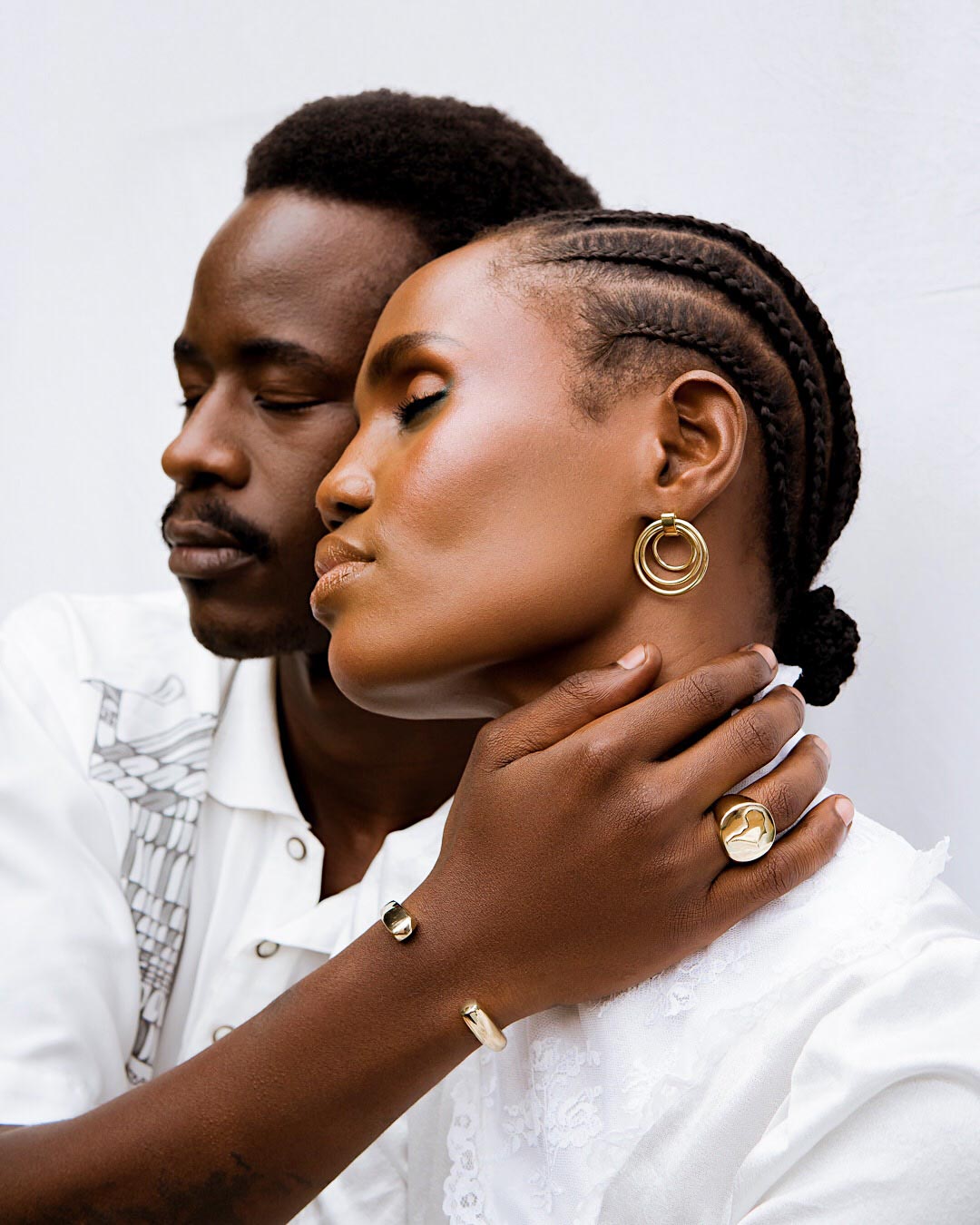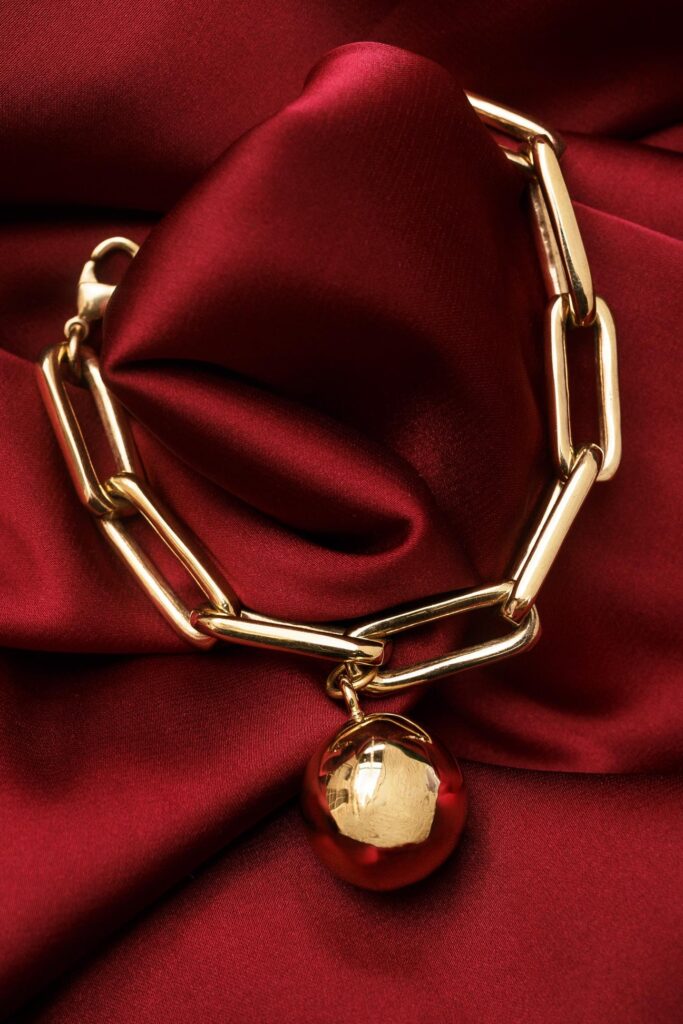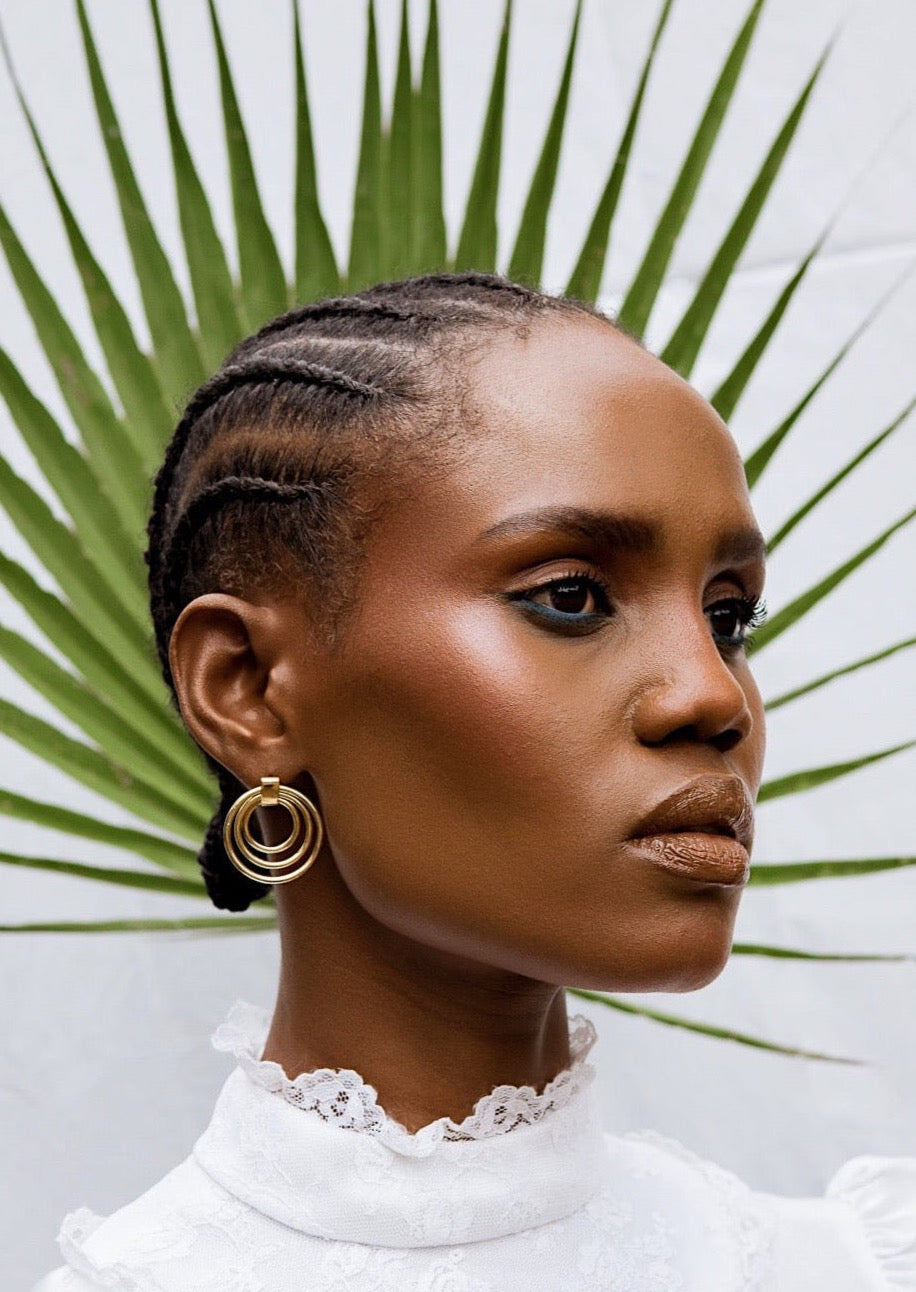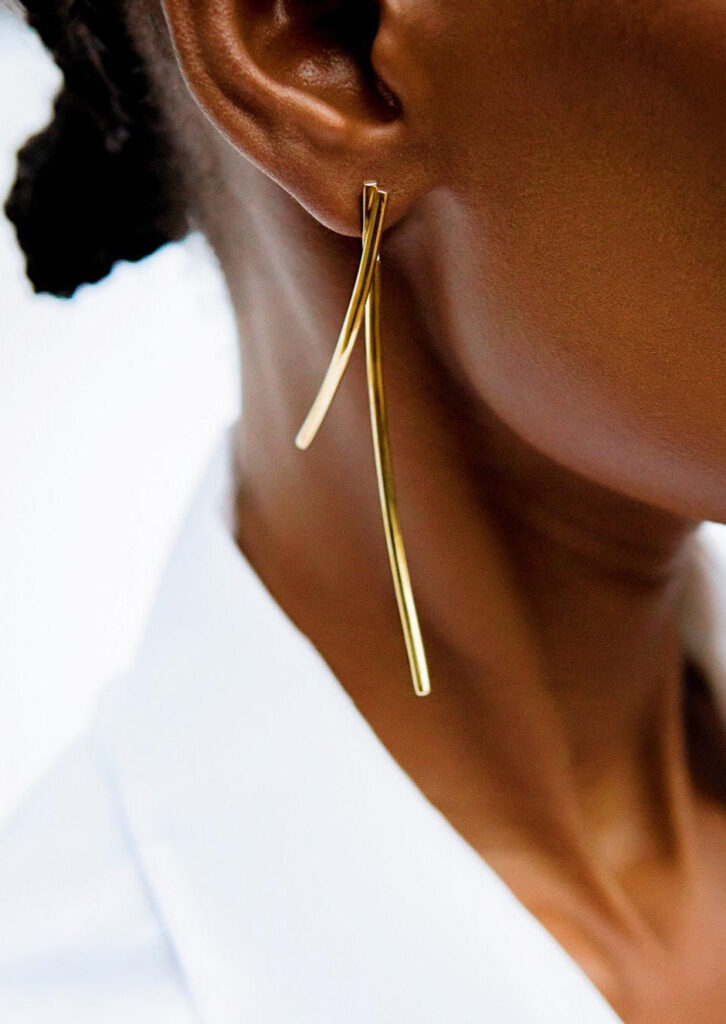
Umutoni Thuku-Benzinge is curating her own definition of luxury. One deeply rooted in her Kenyan and Rwandan heritage, and grounded in her passion for jewelry, social impact, and craftsmanship. As a fashion entrepreneur, she is the founder of the eponymous jewelry brand Umutoni, known for its East African storytelling and minimalist design language.
Born and raised in the UK, Thuku-Benzinge credits her dual heritage with shaping how she views the world.
“I grew up surrounded by strong women, expressive culture, and a deep sense of responsibility to give back—watching the work my mum did with charities,” she recalls.
She studied Economics at the University of Leicester, building a foundation in market analysis and human behavior that led her to a career in the tech and SaaS industries, working in account management and customer success. A diploma in journalism further sharpened her storytelling skills—tools that would become central to the DNA of her brand.
The Story Behind Umutoni

Jewelry had always been a source of comfort and expression for Thuku-Benzinge. At fifteen, she was gifting and selling pieces to friends and family in both London and Kenya—using adornment as a way to share identity and culture. The inspiration to start Umutoni came after watching Black Panther in 2018. She envisioned a luxury brand rooted in African creativity, handmade, ethical, and intentional.
Initially named Kaleidoscope Beauty, the brand soon became Umutoni, which means “favorite and precious” in Kinyarwanda. The name is a reminder that everyone—customer or artisan—holds intrinsic value. From the start, she knew she wanted Umutoni to tell a story that mattered.
“I wanted every design to carry the message that luxury can be ethical, rooted in heritage, and full of intention. Our story is about reclaiming narratives—showing that African-made doesn’t mean second best, and that artisans deserve visibility, dignity, and fair pay.”
The Design Philosophy of Umutoni

The brand’s aesthetic is best described as cultural luxury—each piece designed to feel timeless yet modern. Umutoni draws inspiration from East African heritage while remaining curious, playful, and adaptable. The Omari Cuff, for example, takes a minimalist approach while subtly incorporating Maasai-inspired beading. The Nalla bracelet and necklace build on their classic Lulu chain by adding a bold, spherical accent—a visual cue to stay joyful and present, reflecting Thuku-Benzinge’s personal philosophy of reconnecting with a more childlike mindset.
“Our design philosophy is about balance: bold yet refined, traditional yet modern. We want our pieces to be more than accessories—they’re heirlooms in the making, designed to honor where you come from and who you’re becoming,” she explains.
Over time, her approach to production evolved. At first, she followed the traditional fashion calendar—four seasonal collections a year—but quickly realized it wasn’t sustainable for a purpose-driven, artisan-led brand.
“Pieces can get drowned out in that constant cycle. We value intention and longevity over volume,” she says. “It’s been a deeply collaborative process between myself, the artisans, and our community. When we started, our designs leaned heavily into bright beading and traditional styles, but that also boxed us into a space we didn’t plan to stay in. Over time, we transitioned to modern brass pieces—clean lines, symmetry, and structure—that better reflect our vision of contemporary African luxury.”
Today, Umutoni’s collections are more fluid, abstract, and quietly powerful—each one reflecting a new season in the brand’s evolving journey.
Building Relationships With Artisans

At twenty-one, Thuku-Benzinge was sponsoring a young girl’s education in Kenya. On one visit, she invited the girl and her grandmother to lunch with her family. When the grandmother unexpectedly asked for more money, it sparked a realization: the traditional charity model wasn’t always sustainable.
Around the same time, she began to notice a familiar pattern. Handcrafted pieces she brought back from Kenya—made by local artisans—were being echoed in high street shops across London, often without credit or recognition for the original creators.
“I remembered the artisans I’d met—so skilled, but lacking access to fair pay or global visibility. I held one of their pieces and thought, this belongs on a global stage. That was the defining moment. I didn’t just want to sell jewelry—I wanted to build a brand that empowered artisans, honored their creativity, and challenged the way we define luxury.”
Thuku-Benzinge’s Kenyan and Rwandan heritage sits at the heart of Umutoni. It’s why she continues to center African craftsmanship and stories of identity, heritage, and worth. She works closely with artisans from communities like Kibera and Baba Dogo—training and equipping them to create world-class jewelry.
One of the brand’s biggest challenges has been building a luxury business that is both ethical and community-led. Thuku-Benzinge refused to take shortcuts. Rather than outsourcing, she set up her own gold-plating facility in Kenya after receiving training in Italy. The process came with significant hurdles: importing machinery, building infrastructure from scratch, and training artisans who had little to no experience in fine jewelry finishing.
“It was overwhelming—but also empowering,” she shares. “I wanted our pieces to compete globally, and to do that while producing ethically in Africa meant creating systems that didn’t exist before.”
Umutoni’s journey has also been about shifting mindsets—challenging assumptions about what African-made luxury can be. By staying community-rooted and purpose-driven, every obstacle has only reinforced the brand’s mission.
Crafting Her Own African Luxury

For Thuku-Benzinge, African luxury is in the midst of a long-overdue transformation. Once marginalized or misunderstood, it’s finally being recognized for its authenticity, craftsmanship, and cultural power.
“We’re not the future—we’re now,” she says, pointing to brands like Ozwald Boateng, Labrum, and KÍLÉNTÁR as trailblazers proving that African excellence isn’t emerging. It’s always been here.
“We’re learning that Africa has always had a seat at the luxury table—from raw materials to the creative minds behind iconic designs. It’s refreshing and affirming to see the industry begin to acknowledge what many of us have always known.”
Looking ahead, she hopes to collaborate with other creatives across fashion, interiors, and fine art—designers who share Umutoni’s values of heritage, intentionality, and storytelling.
“I believe in the power of cross-cultural collaboration to push design boundaries while staying rooted in community,” she says.
She also envisions expanding into a physical concept space—a sensory hub where people can engage with process, craftsmanship, and culture. Long-term, she sees Umutoni growing into a legacy lifestyle brand: offering everything from fine jewelry to homeware and curated experiences, all handmade in Africa and all purpose-led.
“The goal is to show the world what luxury looks like when it’s built with integrity and soul,” she tells Guzangs.